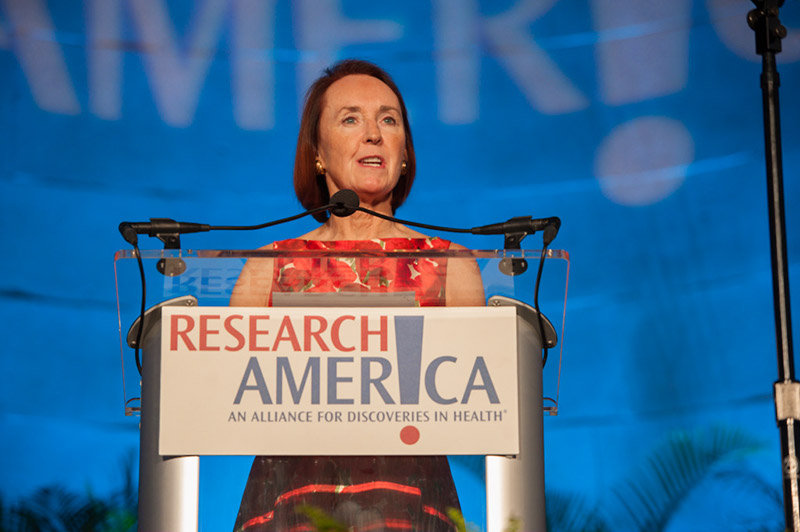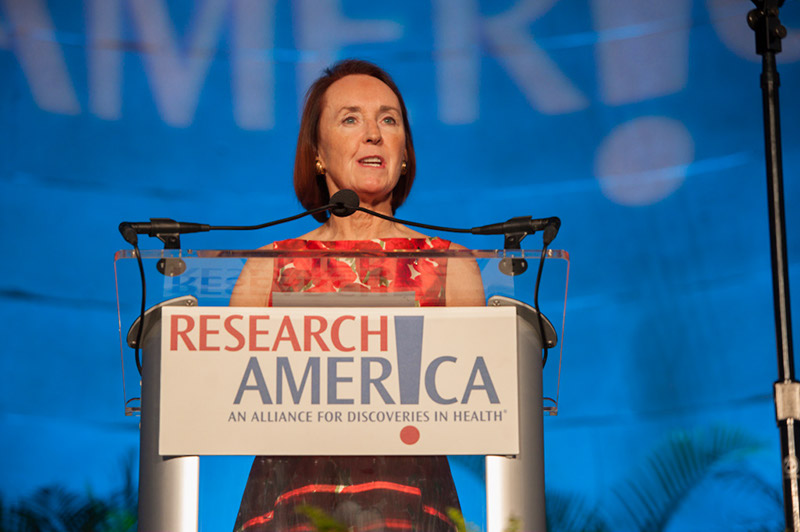Countering societal threats with research and innovation

 Dear Research Advocate,
Dear Research Advocate,
Word of a plan to pass an FY18 omnibus bill in the House by the end of July has surfaced. The plan would require the House to rapidly draft, mark up and stitch together 12 appropriations bills. If House leadership takes this route, it is unclear what overall budget numbers they would work from; rumor has it they may adhere relatively closely to the “sequestration” budget caps established in 2011. Ironically, that would be significantly better than the president’s budget but, as I discussed last week, far worse than what is needed: an agreement to raise the caps and permit more budget flexibility. Call your members of Congress to make the case; and follow up with a message.
The opioid epidemic is one of the major challenges that clearly call for more research and underscore the importance of more budget flexibility to help make that research possible. In an op-ed co-authored by NIH Director Francis Collins and National Institute on Drug Abuse Director Nora Volkow, NIH announced a joint effort with industry to help accelerate the pace of novel overdose-reversal and prevention methods. Tying their hands now via an inadequate budget is in no one’s best interest.
Research not only brings benefits to the nation writ large — including driving the innovation needed to combat the opioid epidemic — but also brings benefits close to home. In a joint op-ed, Sen. Jeanne Shaheen (D-NH) and University of New Hampshire President Mark Huddleston write: “Here in the Granite State, federally funded research has given birth to cutting-edge companies, addressed threats to key sectors of our economy and saved lives with new cures.” Are you interested in penning an op-ed about the impact of research in your state? Consult our newly completed state-by-state fact sheets for local stats and contact Anna Briseno ([email protected]) if we can help.
A topic that has been top of mind for many is expenditures variously termed “indirect costs,” “overhead,” and “facilities and administration.” These include specially purposed laboratory space, utilities, disposal of hazardous waste, compliance with a broad range of regulations, and other essential aspects of conducting and administering research. The President’s budget proposes a drastic reduction in reimbursement for these costs and hearings on the topic are ongoing. This is a complicated issue; I am pleased to announce a Research!America alliance members call next Thursday (6/8) at 2 p.m. ET that will feature two top experts on the topic: Jennifer Poulakidas, VP of Congressional and Government Affairs at APLU and Toby Smith, Vice President for Policy at AAU. Members can get call-in information by emailing Jacqueline Lagoy at [email protected]. In the interim, check out AAU’s FAQs on the topic.
If you’re in the DC area, consider joining us for two Congressional Luncheon Briefings: The first, Innovation Intersection, will be held on June 12 and will drill down into the clinical research phase of the discovery, development, delivery pipeline. The second, The Value of Research and Prevention in Addressing the Societal Burden of Migraine, on June 15 will focus on a condition that affects an estimated 12% of the world’s population and is emblematic of why we must invest in more research.
Sincerely,
Mary Woolley




